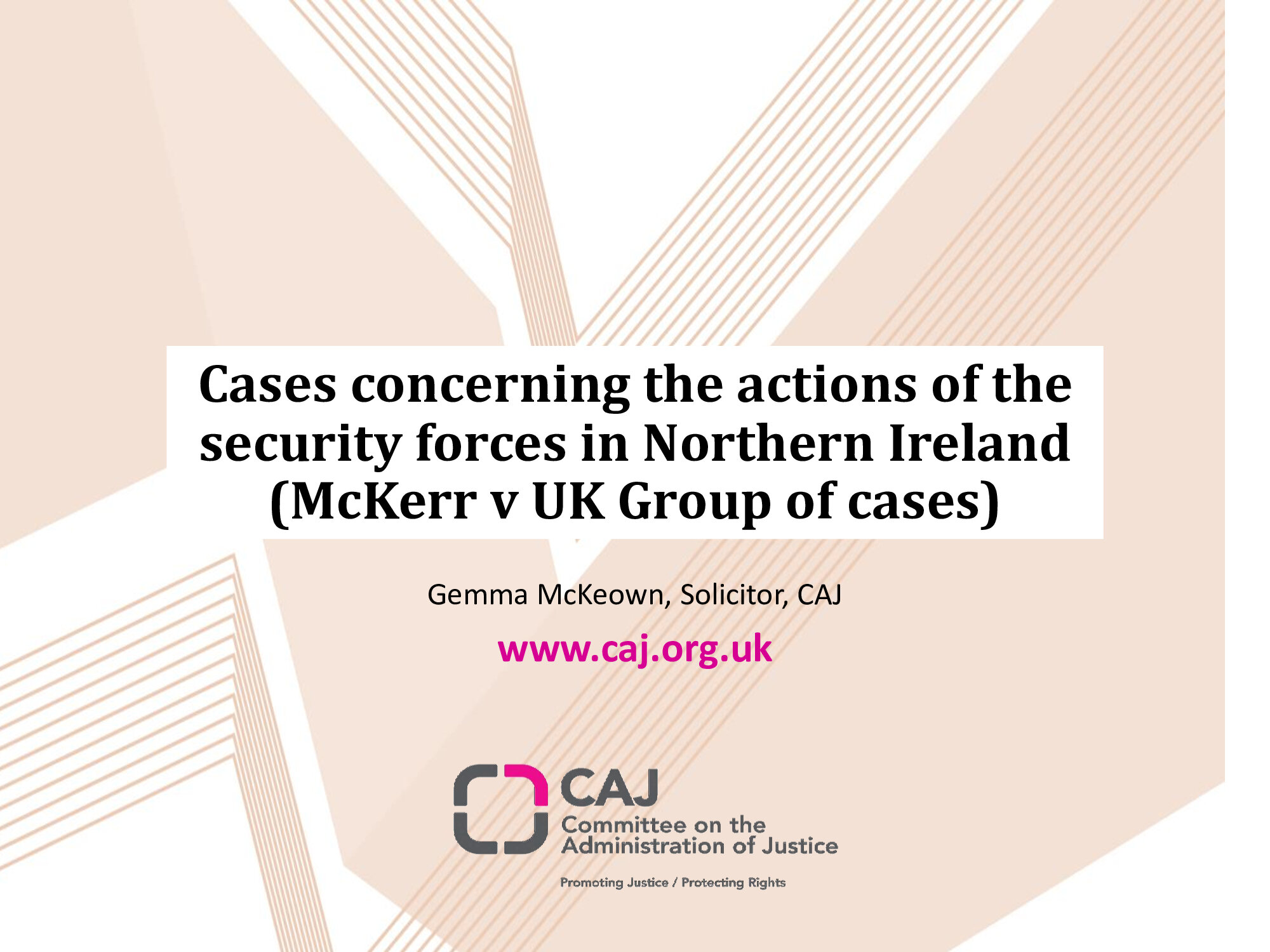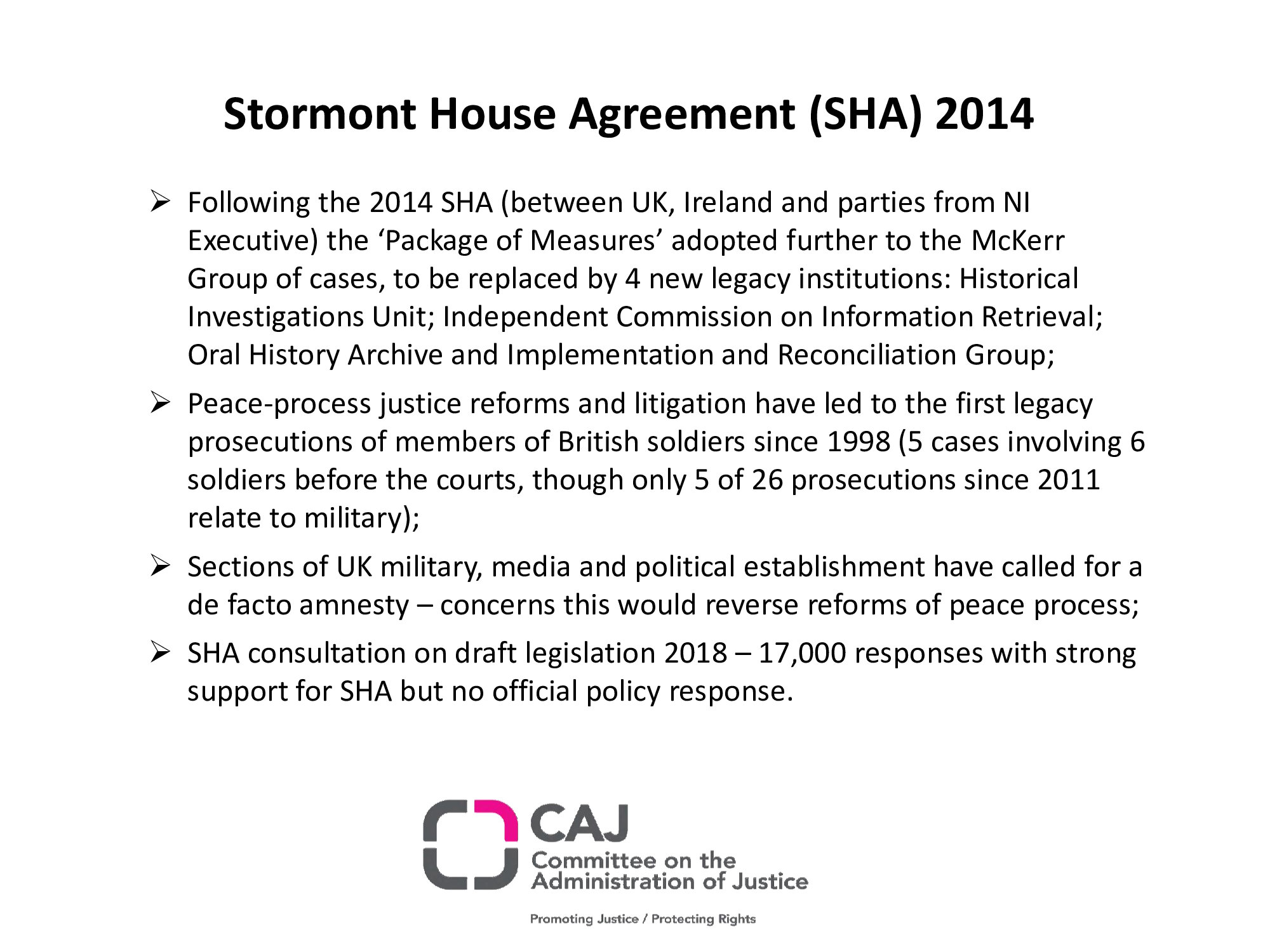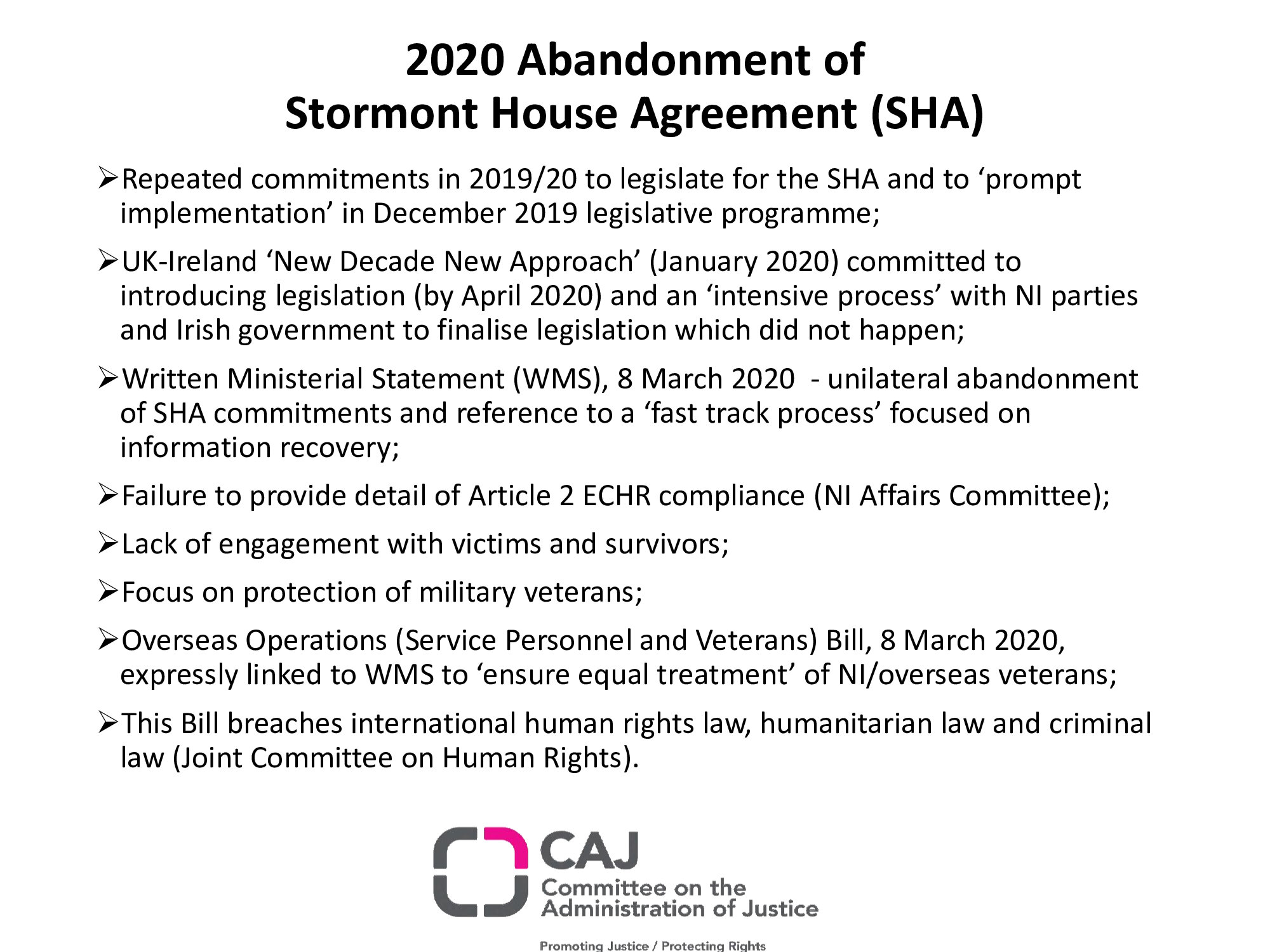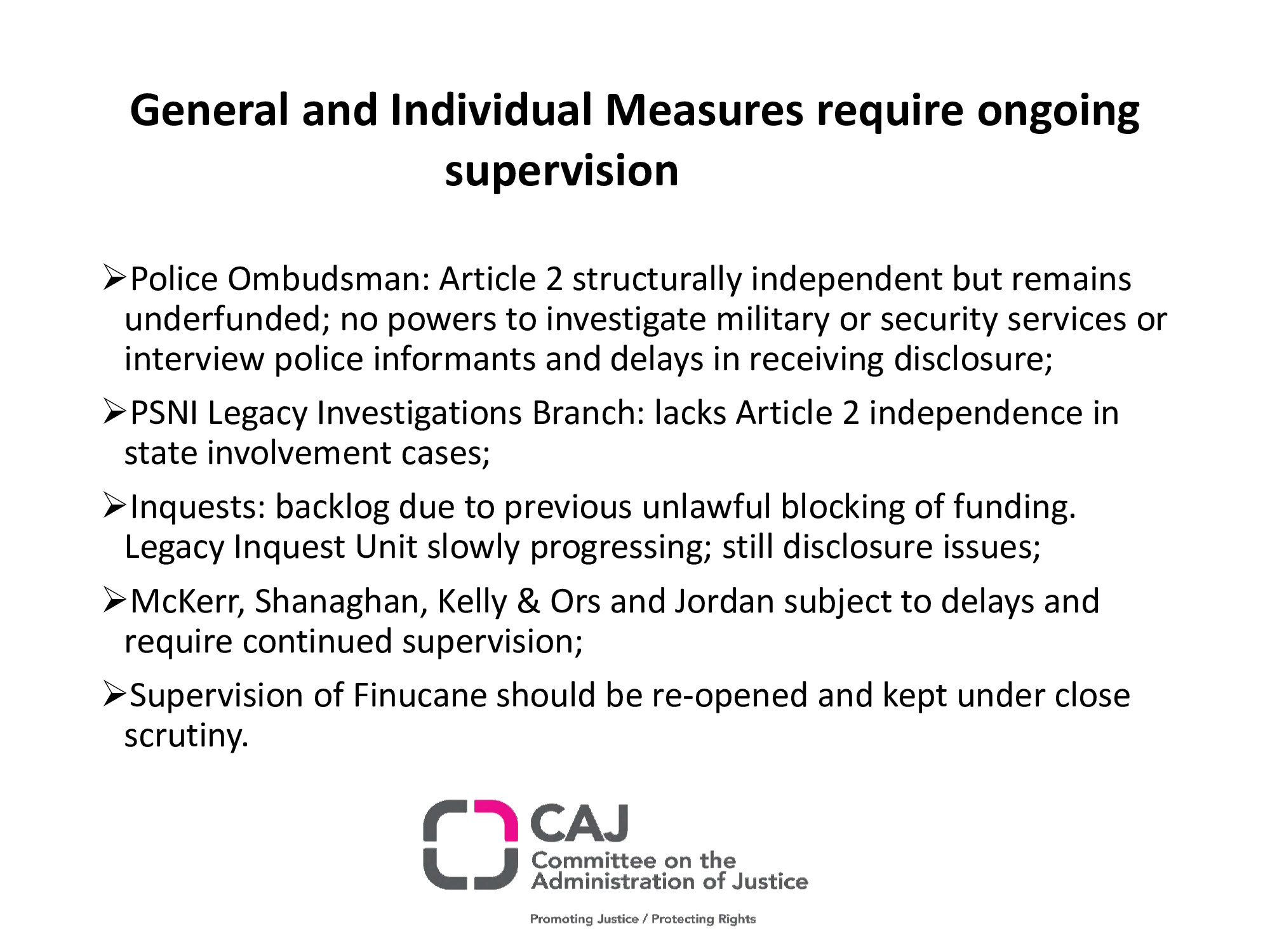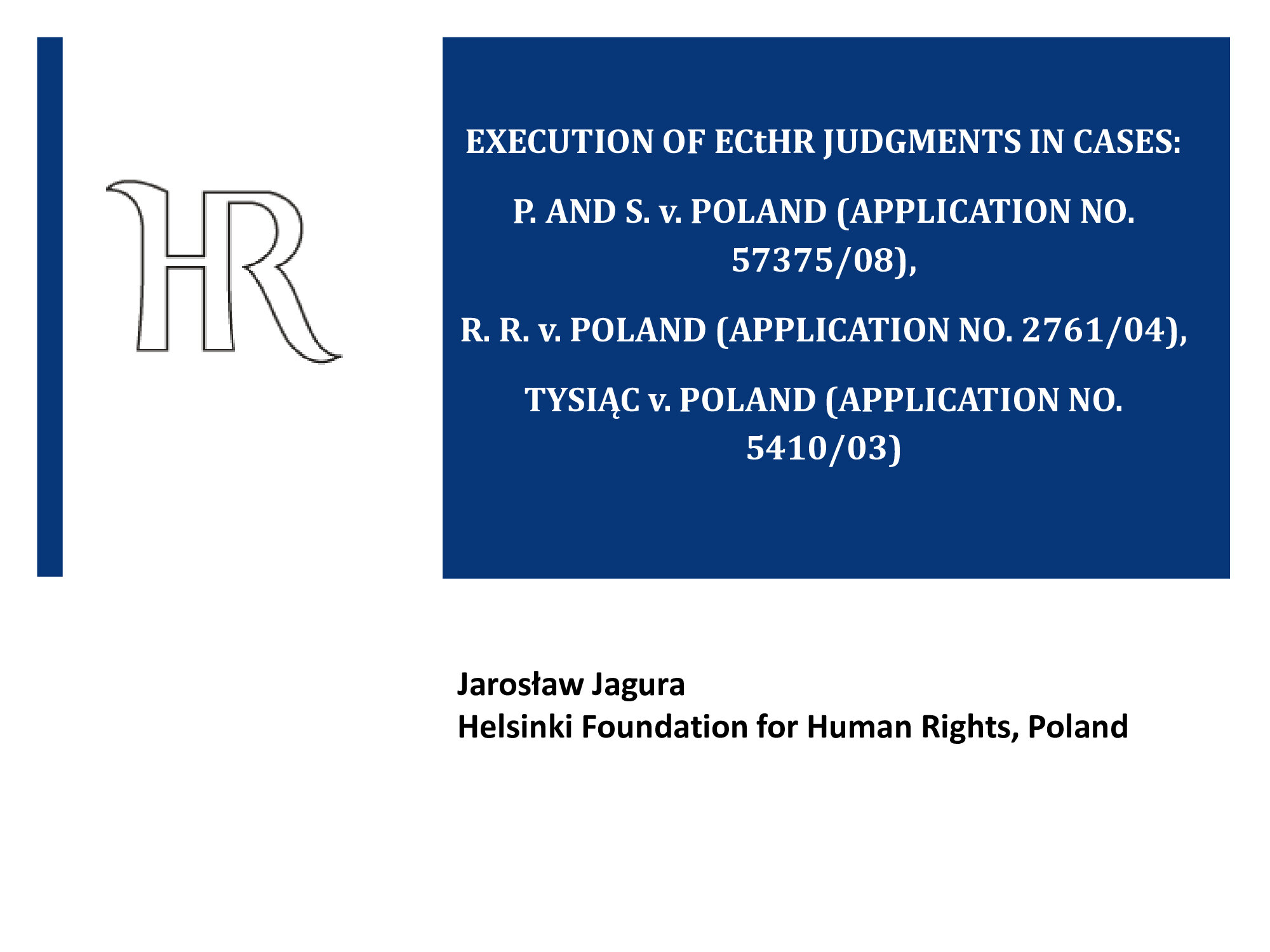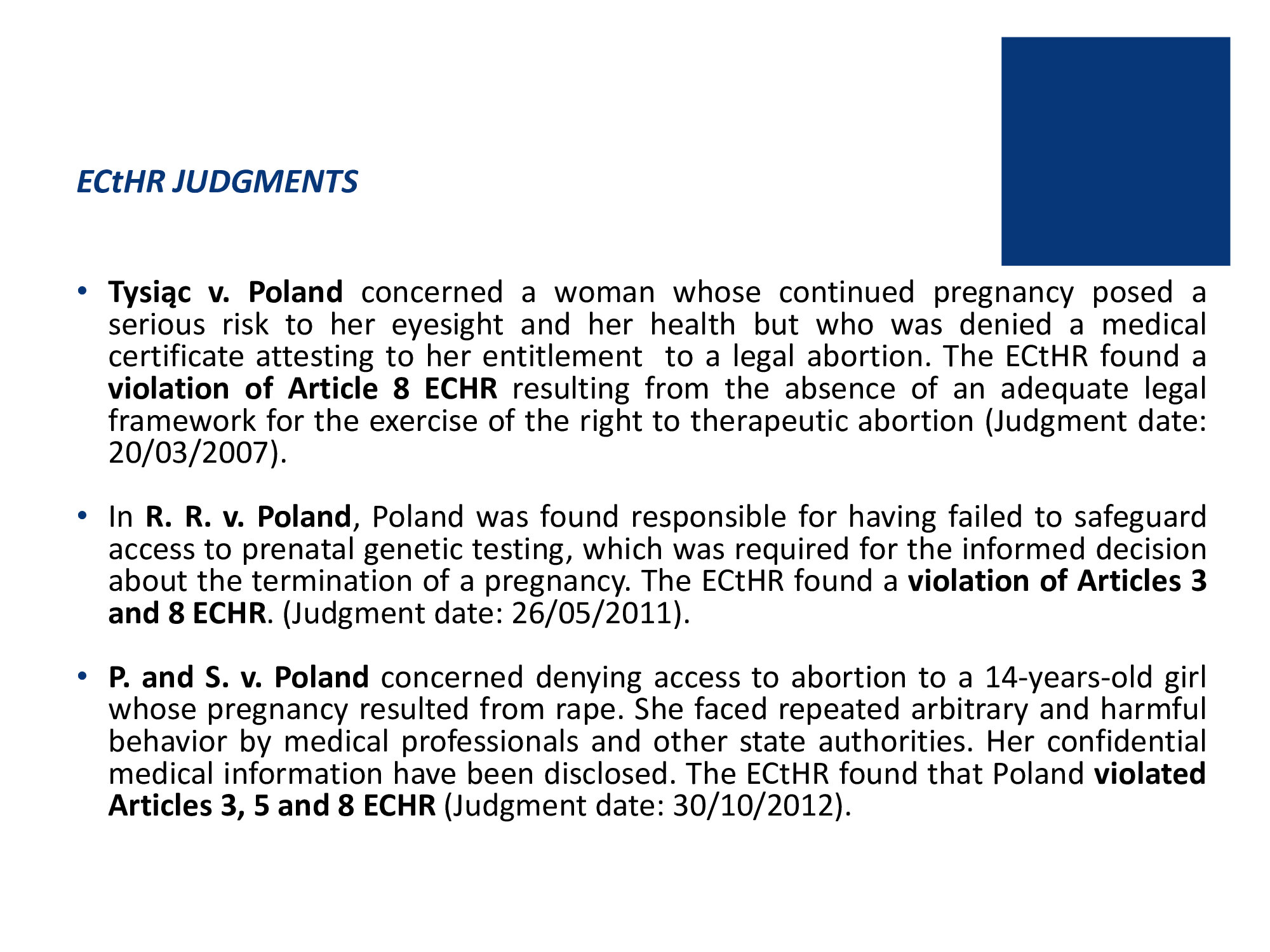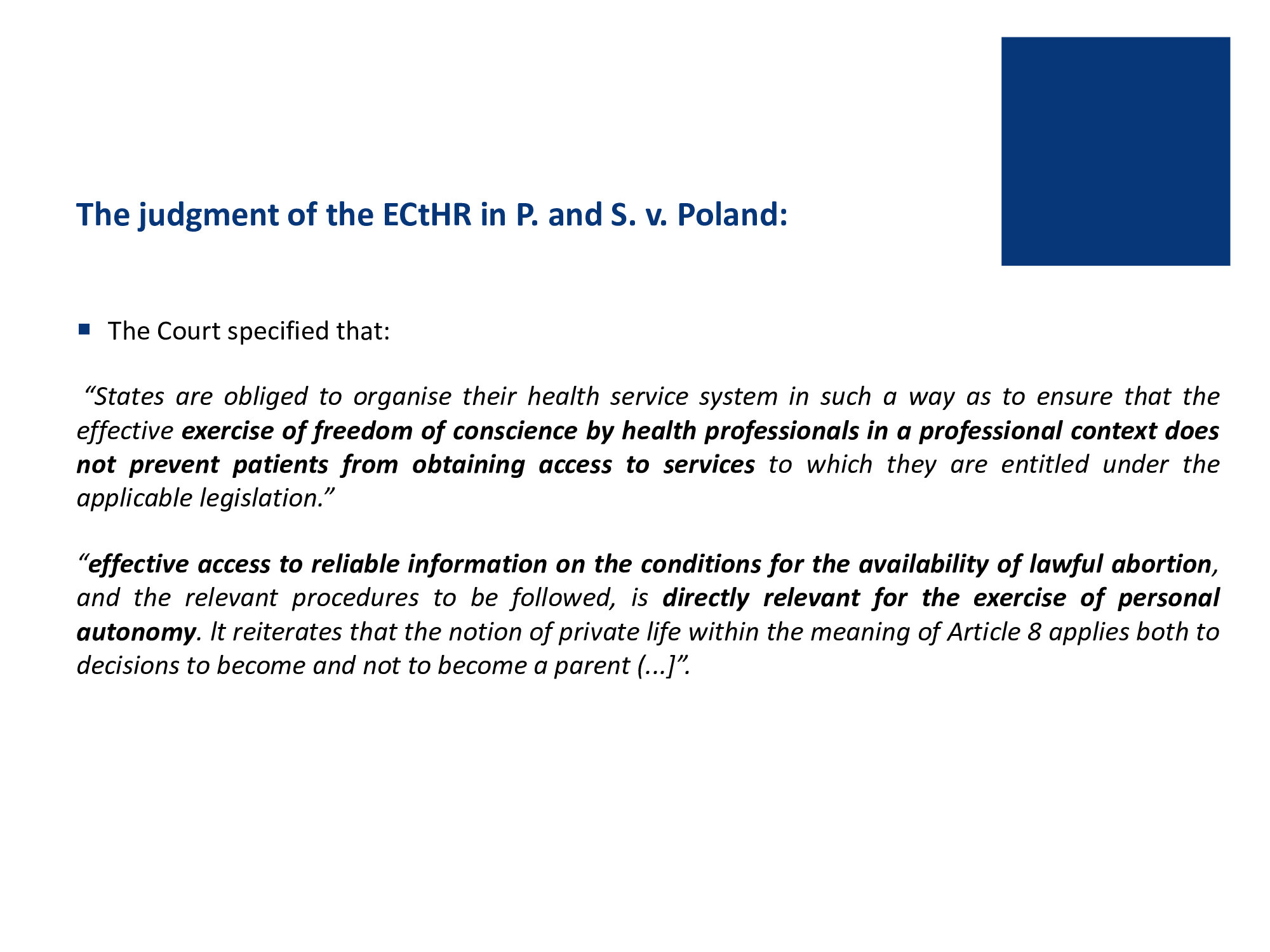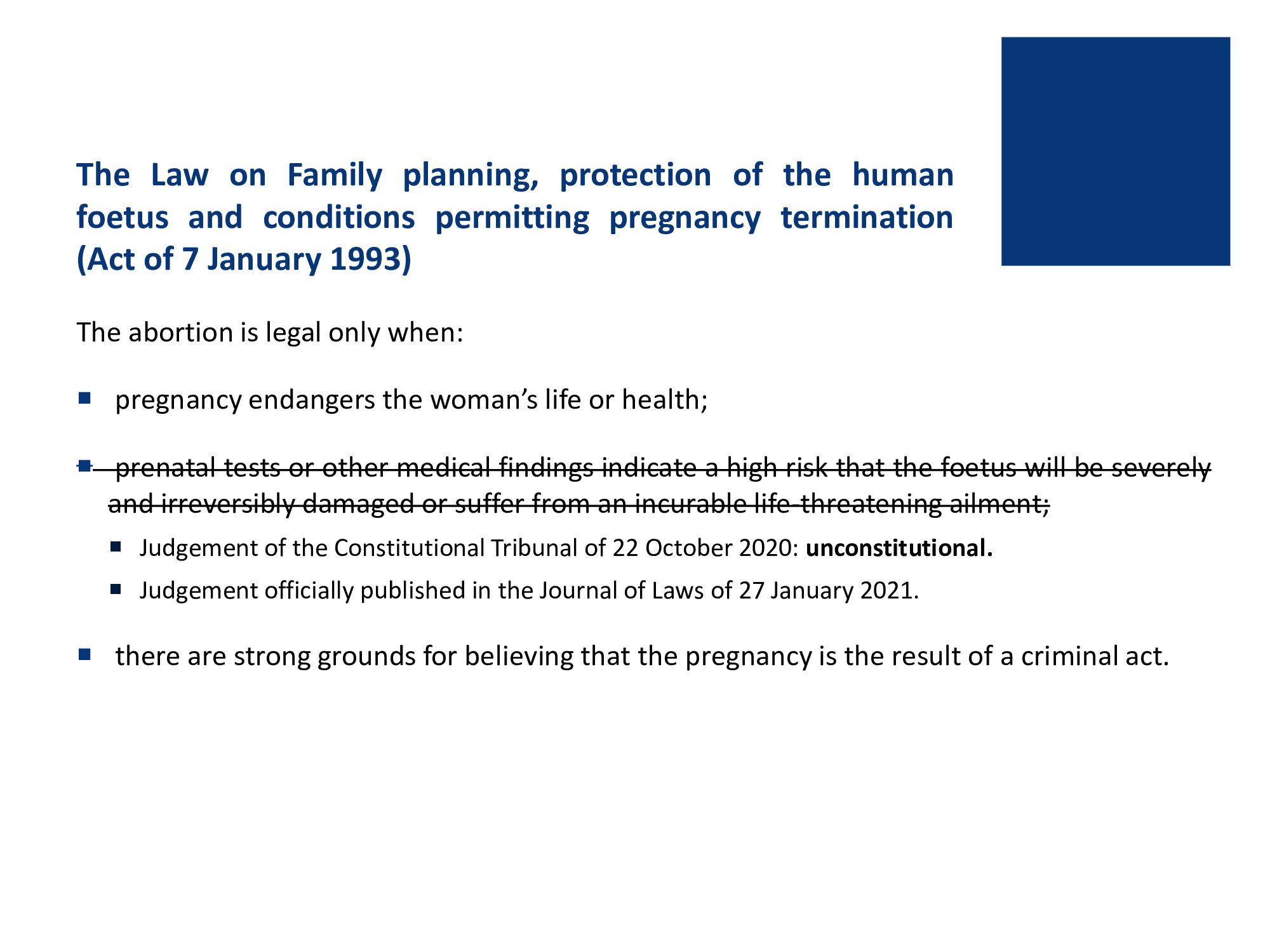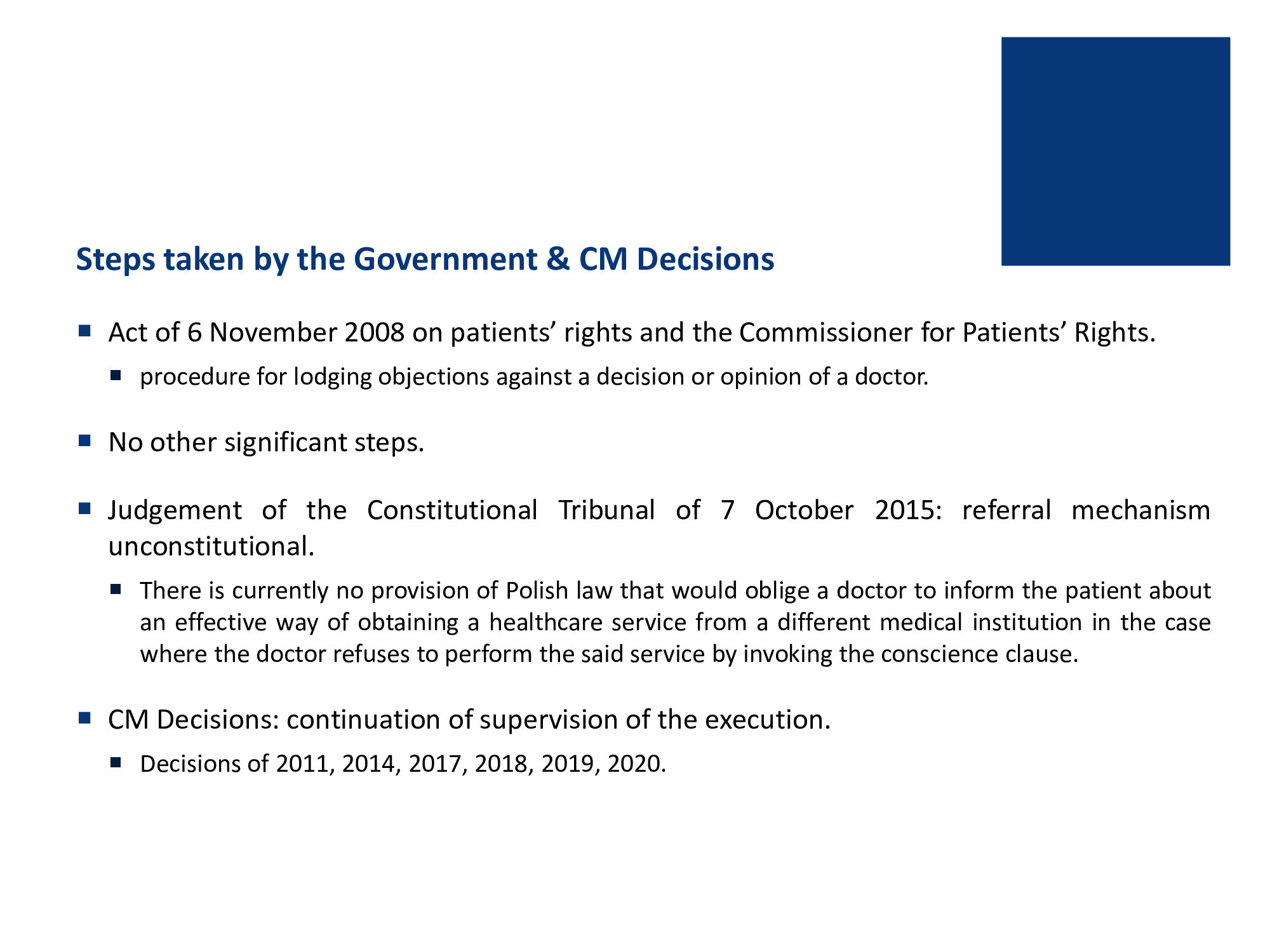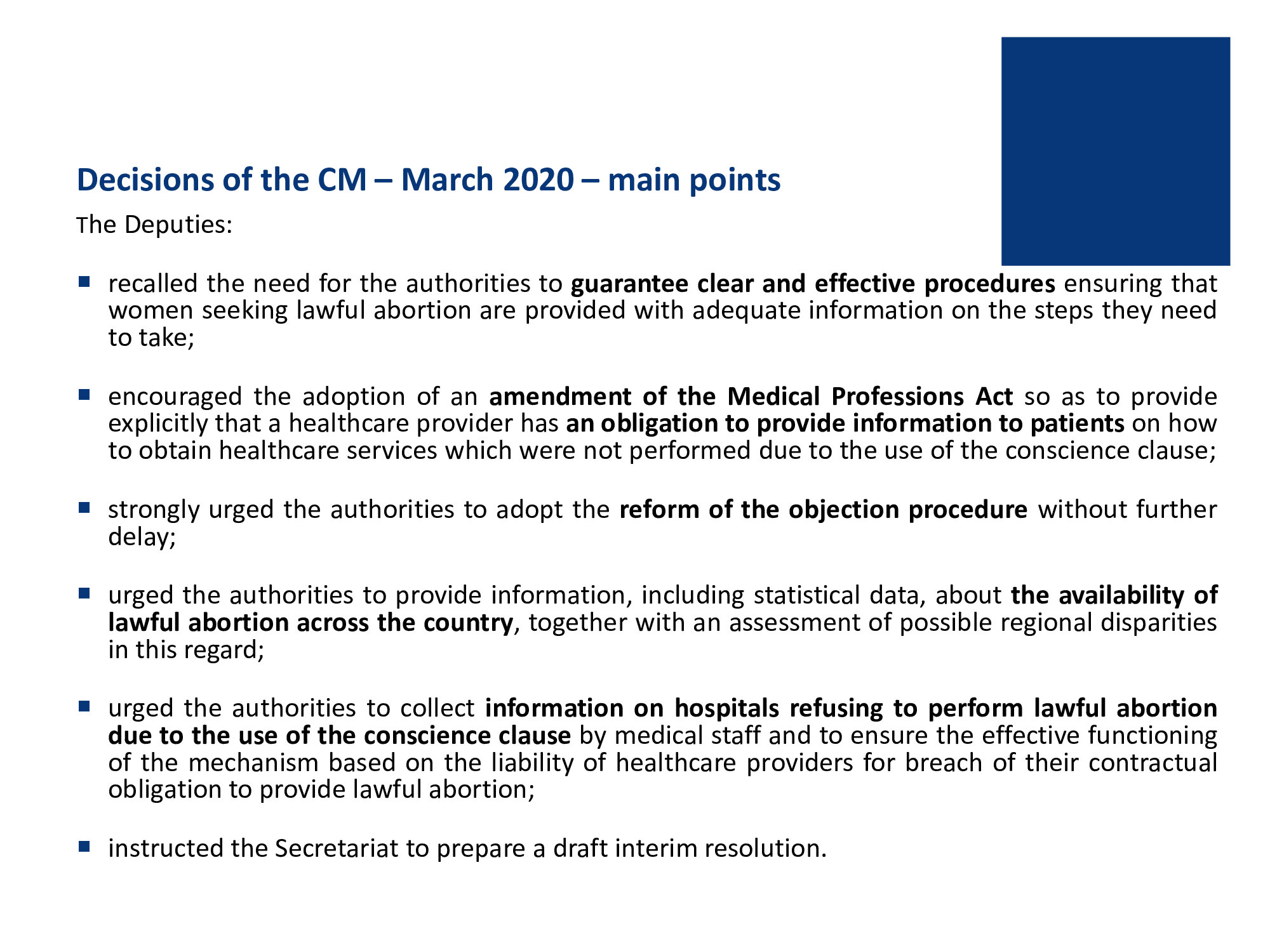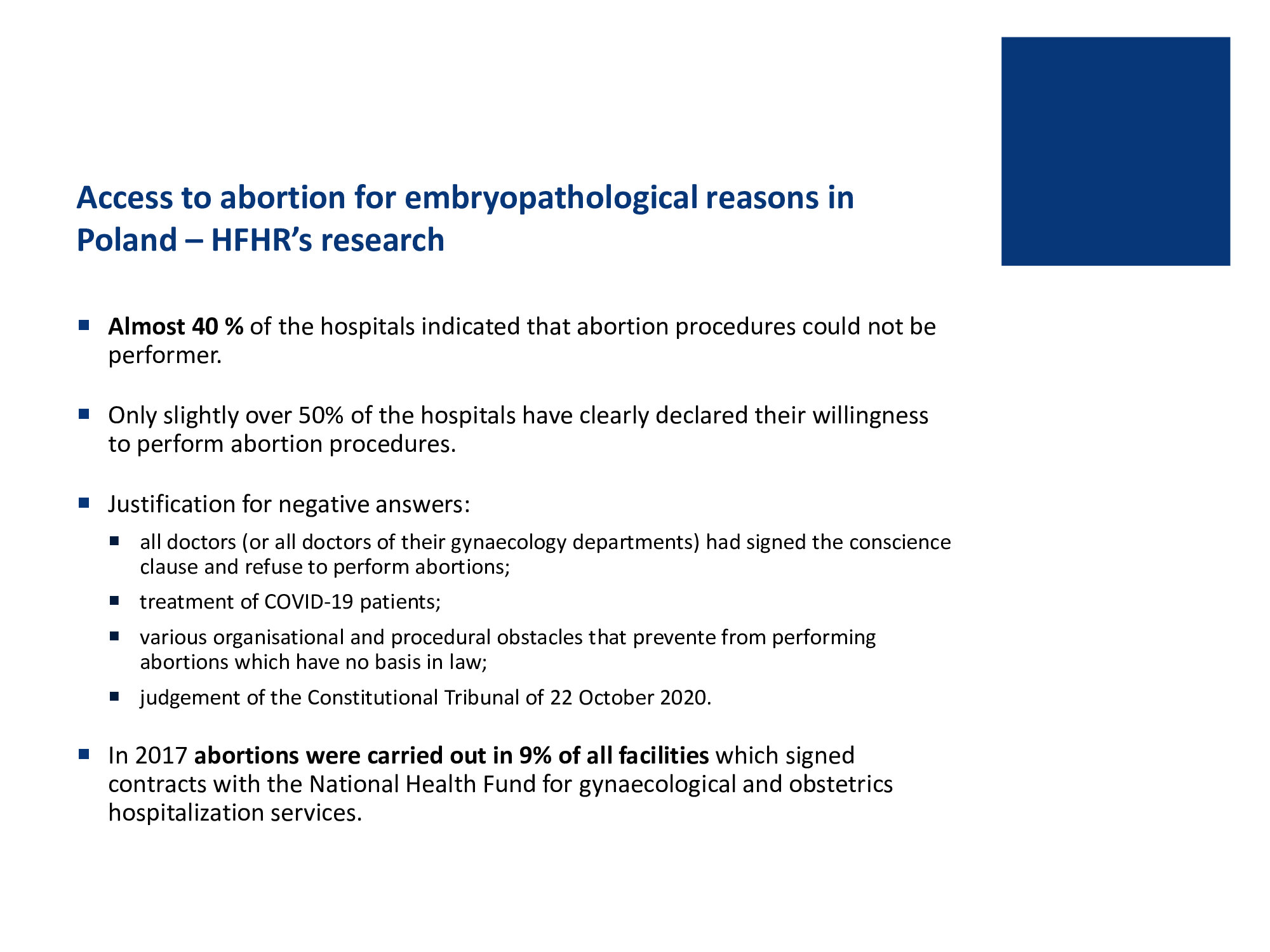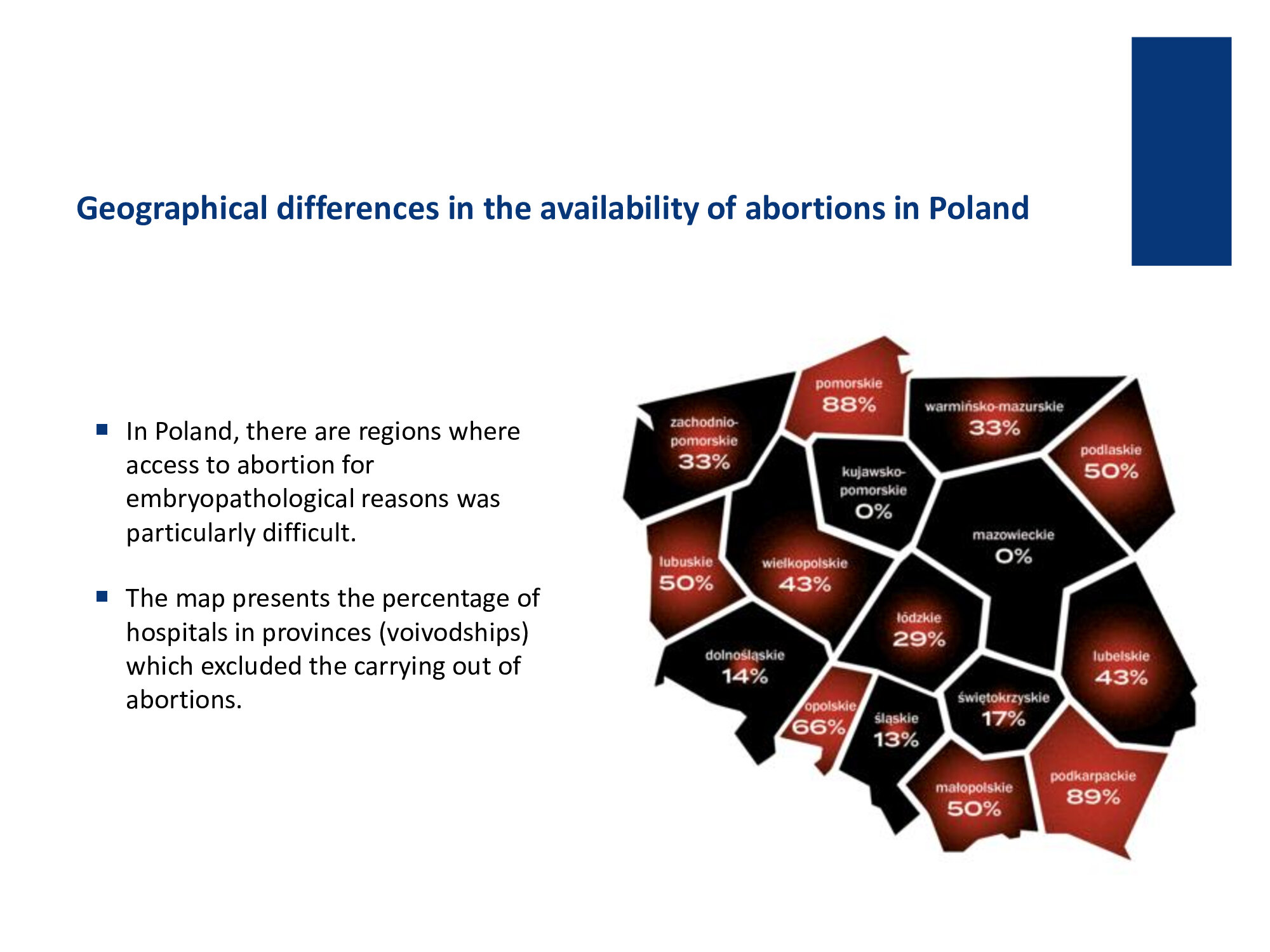Civil Society Briefing: UK and Poland
/Last week EIN concluded its civil society briefings prior to the March meeting of the Committee of Ministers, with a briefing held on February Friday 26th. Due to Covid-19 it was held online.
This second civil society briefing focused on cases concerning the U.K and Poland. Gemma McKeown from the Committee on the Administration of Justice (CAJ) presented on the McKerr group, with an additional briefing on the case of Pat Finucane, the son of Pat Finucane given by the victim’s son, Michael Finucane. Jarosław Jagura from the Helsinki Foundation for Human Rights Poland and Kamila Ferenc from the Federation for Women and Family Planning presented on the P. and S., Tysiąc and R.R. cases v. Poland.
The purpose of civil society briefings is to update the Committee of Ministers (CM) with crucial information on specific cases. Read more on the implementation process here.
McKerr Group v. U.K.:The case concerns actions of security forces in Northern Ireland in the 1980s and 1990s and the failure of the UK to conduct Article 2-compliant investigations.
Recommendations on McKerr v. U.K. group of cases by the Committee on the Administration of Justice
General Measures
CAJ invites the CM to ask the U.K:
Whether it is recommitting to implementing the Stormont House Agreement and if it is, what action is it taking without further delay to take this forward.
What action it is taking to address the underfunding of the Office of the Police Ombudsman and failure of the PSNI to comply with disclosure obligations.
What action it is taking to address issues of delays in the provision of disclosure in legacy inquests.
Individuals Measures:
CAJ echoes the CM’s profound regret that the inquests and investigations in McKerr, Shanaghan and Kelly & Ors have still not been completed, resulting in ongoing breaches of Article 2 ECHR, and repeats its calls for infringement proceedings, under Article 46 (4) ECHR.
CAJ calls for all of the Individual Measures to remain under the supervision of the CM.
CAJ repeats its request for the reopening of the supervision of the Individual Measure under the Finucane v. U.K. case without further delay and that this be kept under regular scrutiny by the CM.
The P. and S., Tysiąc and R.R. cases v. Poland:
P. and S. v. Poland: The case concerns the state’s failure to provide reliable information on lawful abortions to the applicant. This case is under enhanced procedure by the Committee of Ministers. More on the case here.
Tysiąc v. Poland: The case concerns the absence of an adequate legal framework for the exercise of the right to therapeutic abortion in the event of disagreement between the patient and the specialist.
R.R. v. Poland: The case concerns the applicant's lack of access to a prenatal test, enabling the applicant to make an informed decision on whether to seek an abortion.
Recommendations on P. and S., Tysiąc and R.R. cases v. Poland
Recommends the CM to continue its supervision of the P. and S. v. Poland, R. R. v. Poland, and Tysiąc v. Poland cases.
Urges the CM to consider the possibility of issuing an interim resolution given the considerable time elapsing from the delivery of the ECtHR's judgments in the following cases: P. and S. v. Poland, R. R. v. Poland, and Tysiąc v. Poland.
Recommends that CM should again request the Polish authorities to provide data on the actual availability of abortion in hospitals, specifically the data on hospitals where a woman can't have her pregnancy terminated because of the conscience clause invoked by the doctors.
Polish authorities should guarantee that women may receive reliable and objective information on the grounds for the Iawful termination of pregnancy and the condition of the foetus. This information should be provided before the end of the legal period when an abortion is allowed. Polish authorities should introduce an expedient and effective procedure to ensure that women have an opportunity to exercise the right to Iawful abortion.
Mechanisms should be introduced to ensure that the right to abortion is not nullified by the invocation of the conscience clause by doctors.
See Helsinki Foundation for Human Rights presentation below.
By the Centre for Reproductive Rights and the Federation for Women and Family Planning
Recommends that the CM continue its enhanced scrutiny of the Tysiąc, R.R. and P. and S. judgments and urge Poland to adopt the measures required by the judgments to address prevailing legal barriers and enforcement deficits and enable women and adolescents to exercise their rights under Polish law to obtain reproductive health services.
Recommends the Committee of Ministers request the authorities to:
Establish effective and timely procedure for women to challenge and resolve disagreements with and between doctors regarding their entitlement to legal abortion care and to exercise their rights in this regard. This mechanism must ensure: a decision within no more than 3 days; the right of judicial appeal; the issuance of enforceable orders mandating a particular health care facility or medical provider to provide the care sought.
Adopt effective measures to ensure that refusals based on the “conscience clause” by medical professionals do not undermine or delay women’s access to legal abortion or prenatal testing. This should include enacting legally binding measures requiring medical professionals to timely refer women who are refused abortion care based on the “conscience clause” to alternative medical professionals committed and able to provide the care; establishing effective oversight and monitoring mechanisms; and ensuring an adequate number of medical providers committed to provide abortion care throughout the country.
Strengthen enforcement procedures and measures, including by ensuring appropriate sanctions and disciplinary actions against health care facilities and professionals for any failures to comply with obligations to provide legal reproductive health services and information.
Effectively monitor compliance by all health care facilities with their contractual obligations to the National Health Fund and actively enforce these contracts, including by sanctioning breaches by health care institutions and medical providers.
Adopt effective measures to guarantee women timely access to reliable information on the conditions and effective procedures for their access to legal abortion care, such as comprehensive guidelines to all health facilities and professionals providing reproductive health care.
Adopt effective measures to ensure that full and reliable information is provided to women and adolescent girls enabling them to take informed decisions about their pregnancy.
Adopt effective measures to enhance protection of patient data confidentiality.
Introduce targeted measures to ensure that the needs of adolescents who are seeking legal abortion care are met and that they are treated with respect and due consideration for their vulnerability.
See the original recommendations here.
We thank the Committee on the Administration of Justice, the Helsinki Foundation for Human Rights Poland, and the Federation for Women and Family Planning for sharing their insights and recommendations on these cases.
Relevant Documents:
Committee of Ministers Interim Resolution on McKerr Group (December 2020)
The Committee of the Administration of Justice Submission on the McKerr Group case (October 2020)
The Committee of Ministers Decisions on P. and S. v. Poland (March 2020)
The Committee of Ministers Decisions on Tysiąc and R.R. v. Poland (March 2020)
Communication from the Helsinki Foundation for Human Rights on P. and S., Tysiąc and R.R. cases v. Poland (February 2021)


